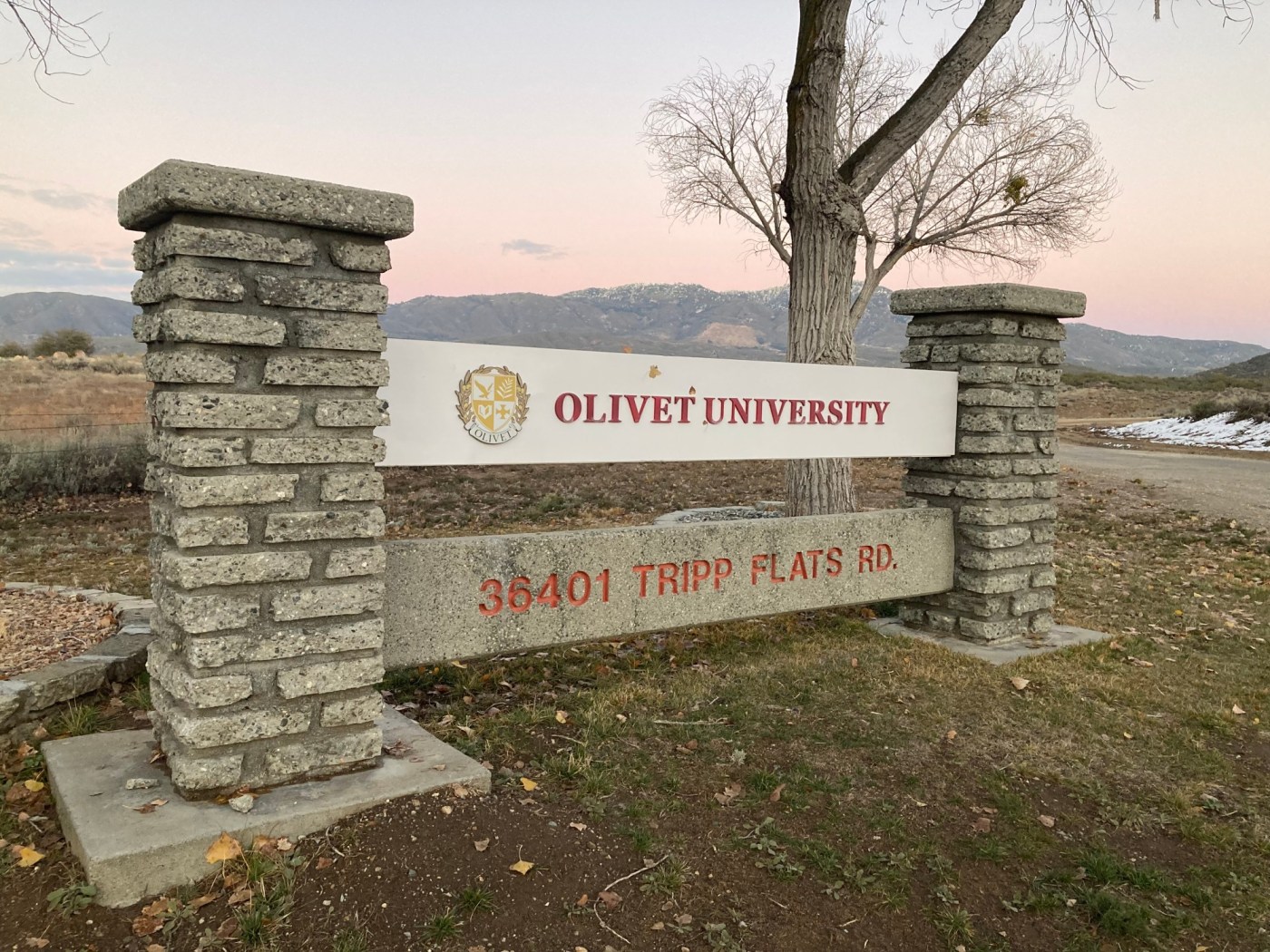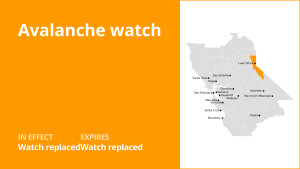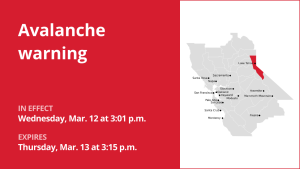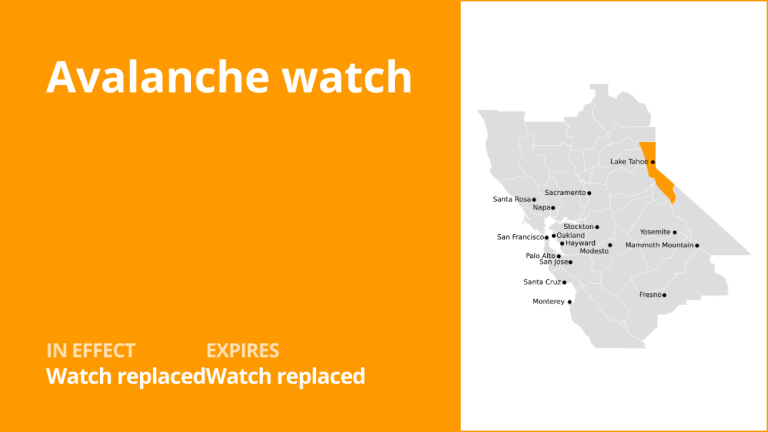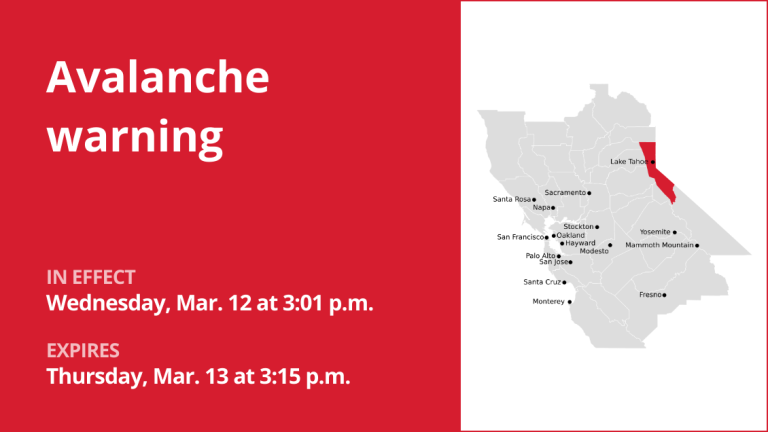An Anza-based Christian college under federal investigation for alleged labor trafficking and money laundering has been ordered to cease operation for failing to adhere to state educational guidelines and mandates.
Administrative Law Judge Debra Nye-Perkins, in decision that became effective Dec. 10, revoked Olivet University’s license and ordered officials to stop enrolling new students and to propose a plan within 30 days to “teach out” its current students, allowing them to complete their courses, perhaps at another institution, after the campus shuts down.
Nye-Perkins also ordered Olivet to pay more than $64,000 for the cost of the state investigation that found 14 violations during site inspections at Olivet’s Anza and Mill Valley campuses in 2022 and 2023. That probe prompted Attorney General Rob Bonta to file a complaint, called an accusation, with the Department of Consumer Affairs in April 2023 on behalf of Deborah Cochrane, chief of the Bureau for Private Postsecondary Education.
In her 107-page decision, Nye-Perkins stated that Olivet officials continued to show a “cavalier attitude” toward compliance with state education statutes and regulations and “minimized its failure” to abide by them during a three-day administrative hearing last month.
“The only degree of discipline that would ensure public protection is the revocation of respondent’s approval to operate,” Nye-Perkins said in her Dec. 5 decision.
Olivet’s violations, according to the April 2023 accusation, included insufficient course offerings and staffing, faculty lacking contracts and minimum education requirements, failure to show sufficient financial resources, and failure to have student enrollment agreements and other records immediately available.
During last month’s hearing, six witnesses — including three special investigators — testified on behalf of the BPPE, which was represented by Deputy Attorney General Dionne Mochon. During her closing argument, Mochon said the testimony established that many of the violations investigators found at Olivet during the investigation continue to apply today.
Seven witnesses testified on behalf of Olivet, including university President Jonathan Park, Vice President Walker Tzeng and former President Matthias Gebhardt. Olivet did not have an attorney present during the hearing, and university representatives did not respond to questions asking why.
In a statement posted on its website on Sunday, Dec. 15, Park said the university is planning to appeal Nye-Perkins’ decision and has filed an application to continue operating under a religious exemption.
“This step reflects the University’s commitment to continuing its mission and activities while upholding its core values and principles as a Christian institution,” Park said in the statement. “The University remains dedicated to serving its students and community during this transitional period.”
History of Olivet
Olivet was established by David Jang, a Korean Christian pastor and professor, in the Bay Area in 2000 as Olivet Theological College & Seminary. In 2004, it was incorporated as Olivet University, with its curriculum and programs tailored for ministry-bound students from all over the world, mainly China.
In 2014, the university purchased its 1,000-acre property in Anza, situated in the San Jacinto Mountains east of Temecula, and established its headquarters there.
Aside from its main Anza campus, the university has 11 satellite campuses across the U.S., according to its accreditor, the Association for Biblical Higher Education.
Hearing
During the livestreamed hearing, Park and Tzeng accused Newsweek, a New York-based weekly news magazine owned by two former members of the Olivet sect, of weaponizing their publication and using it to trigger the state’s investigation. They asserted the investigation was tainted by the media as well as racial and religious bias.
Park and Tzeng also challenged the competency of the state investigators, maintaining that, while not perfect nor denying that fixes were needed at the school, Olivet has addressed some of the problems and was working to repair others.
Park said the state probe should not have risen to the level it had, and that better communication and coordination between the state and Olivet officials could have saved time and produced better results.
Ongoing issues
Related Articles
Iconic Flint Center demolished five years after closing
Wish Book: Bay Area organization helps first-generation college students succeed
San Jose, SJSU announce collaboration with NVIDIA to further workforce development, AI innovation
‘You don’t know what’s next.’ International students scramble ahead of Trump inauguration
UC Santa Cruz students sue university over fatal bus crash
Nye-Perkins noted in her decision that Olivet was cited by the state in January 2020 for failing to submit student performance fact sheets in the correct format and with the necessary supporting documentation and data. Despite the citation, Olivet continued to fail in complying with the law, according to the decision.
In February 2020, Olivet pleaded guilty in New York to a misdemeanor count of conspiracy and a felony count of falsifying business records in a scheme to fraudulently obtain $35 million from lenders. The university was ordered to pay $1.25 million in forfeiture over two years.
Olivet met all the conditions of its plea agreement, and, as a result, the charge of falsifying business records was reduced to a misdemeanor in February 2022, according to a spokesperson at the Manhattan District Attorney’s Office.
In November 2022, the university’s accreditor, the Association for Biblical Higher Education, placed Olivet on warning status through February 2024 for failing to demonstrate “integrity in all of its practices and relationships with strict adherence to ethical standards and its own stated policies.”
The ABHE also criticized Olivet for failing in “honest and open communication” with its accrediting, licensing and governing agencies and compliance with legal and governmental regulations.
In August 2023, Olivet University, President Park and World Olivet Assembly were among 18 defendants in a lawsuit filed by Texas-based e-commerce company 8fig alleging they used a network of online storefronts and other companies to defraud it of more than $6.5 million. The parties to the suit are in settlement talks, according to Newsweek
Federal investigation
In April 2021, special agents with Homeland Security Investigations and Riverside County sheriff’s and district attorney’s investigators served a search warrant at Olivet’s Anza campus in an investigation into allegations of labor trafficking, money laundering and visa fraud. The warrant remains under seal.
Additionally, four former students have sued Olivet alleging they were victims of human labor trafficking and forced to work, without pay, after coming overseas to attend the school on full scholarships.
The former students — Dawin Liranzo Galan, Roland Broccko, Minerva Ruiz and Rebecca Singh — traveled from Spain, Venezuela and India to the U.S. on student visas obtained through Olivet so they could attend the school in 2017 and early 2018. But when they arrived in the high desert town, they were told they had to work to pay off their debt, according to the lawsuit.
Olivet has denied the allegations, and the lawsuit has been stayed pending the federal criminal investigation.
According to joint motion filed in federal court in April 2024 requesting the case be stayed, the U.S. Attorney’s Office in Riverside confirmed it was conducting a criminal investigation into Olivet and was up against a statute of limitation to file any criminal charges.
